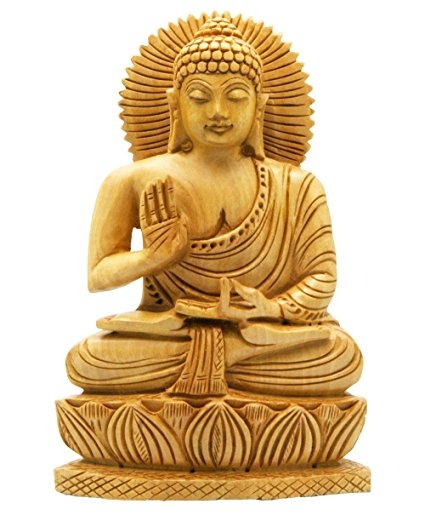
By Thangjam Sanjoo Singh
One of the noteworthy characteristics that distinguish the Buddha from all other religious teachers is that he was a human being with no connection whatsoever with a God or any other ‘Supernatural’ Being. He was neither God nor an incarnation of God, nor any mythological figure. He was a man, but a super-man, an extra-ordinary man. He was beyond the human state inwardly though living the life of a human being outwardly. Just as he is for this reason called a unique being, man par excellence.
Through personal experience the Buddha understood the supremacy of man and the concept of a ‘supernatural’ being who rules over the destinies of beings below, he found to be a mere illusion. The Buddha never claimed to be a savior who tried to save ‘souls’ by means of a revealed religion. Through his own perseverance and understanding he proved that infinite possibilities are latent in man and that it must be man’s endeavor to develop and unfold these possibilities. He proved by his own experience that enlightenment and deliverance lie absolutely and entirely in man’s hand. Being an exponent of the strenuous life by precept and example, the Buddha encouraged his disciples to cultivate self-reliance, thus: ‘You are your own refuge, who else could refuge be?’
It was the Buddha who for the first time in the world’s history taught that deliverance could be attained independently of an external agency that deliverance from suffering must be wrought and fashioned by each one for himself/herself upon the anvil of his/her own actions.
The Buddha warns his disciples against shifting the burden to an external agency, a savior, a God or Brahma, directs them to the ways of discrimination and research and urges them to get busy with the real task of developing their inner forces and qualities. He says: ‘I have directed you towards deliverance. The Dhamma, the Truth, is to be self-realized.
Buddhist monks are not priests who perform rites of sacrifice. They do not administer sacraments and pronounce absolution. An ideal Buddhist monk cannot and does not stand as an intermediary between men and ‘supernatural’ powers; for Buddhism teaches that each individual is solely responsible for his own liberation. Hence there is no need to win the favor of a mediating priests. ‘You yourselves should strive on; the Tathagatas only show the path.
The path is the same Ancient Path trodden and pointed out by the Enlightened Ones of all ages. It is the Noble Eightfold Path leading to enlightenment and highest security.
Another distinguishing characteristic is that the Buddha never preserved his supreme knowledge for himself alone. To the Buddha such a wish is utterly inconceivable. Perfect enlightenment, the discovery and realization of the Four Noble Truths (Buddhahood), is not the prerogative of a single being chosen by Divine Providence; nor is it a unique and unrepeatable event in human history. It is an achievement open to anyone who earnestly strives for perfect purity and true wisdom and with inflexible will cultivate the Noble Eightfold Path.
The Buddha, however, also made clear to his disciples the difference between a fully Enlightened One and the Arahats, the Accomplished Saints:
‘The Tathagata, O disciples, while being an Arahat, is fully Enlightened. It is he who proclaims a path not proclaimed before, he is the knower of a path, who understands a path, who is skilled in a path. And now his disciples are way-farers who follow in his footsteps. That, disciples, is the distinction, the specific feature which distinguishes the Tathagata, who being an Arahat, is Fully Enlightened from the disciple who is freed by insight.
When communicating the Dhamma to his disciples, the Buddha made no distinction whatsoever amongst them; for there were no specific chosen favorite disciples. Amongst his adherents all those who were Arahats, who were passion-free, and had shed the fetters binding them to renewed existence had equally perfected themselves in purity. But there were some outstanding ones who were skilled in different branches of knowledge and practice, and because of their mental endowments gained positions of distinction but special favors were never granted to anyone by the Master.
There is not even an indication that the Master entrusted the dispensation to any particular disciple before he passed away; not even to his two chief disciples, Sariputta and MahaMoggallana. He did not appoint anyone as his successor. In this connection, it is interesting to note that the Buddha made clear to his disciples, before he passed away that he never thought of controlling the Order. Addressing the monks round the death-bed the Master said:
‘The doctrine and the discipline which I have set forth and laid down for you let them after I am gone be the teacher to you.’
Even during his life time it was the Dhamma-vinaya that controlled and guided the monks. He was no potentate. The Buddha’s Ancient Path, the Eightfold Path, is the teaching for free men.
The writer is a lay Buddhist and a Vocalist of a Rock Band called ‘No Name’.



